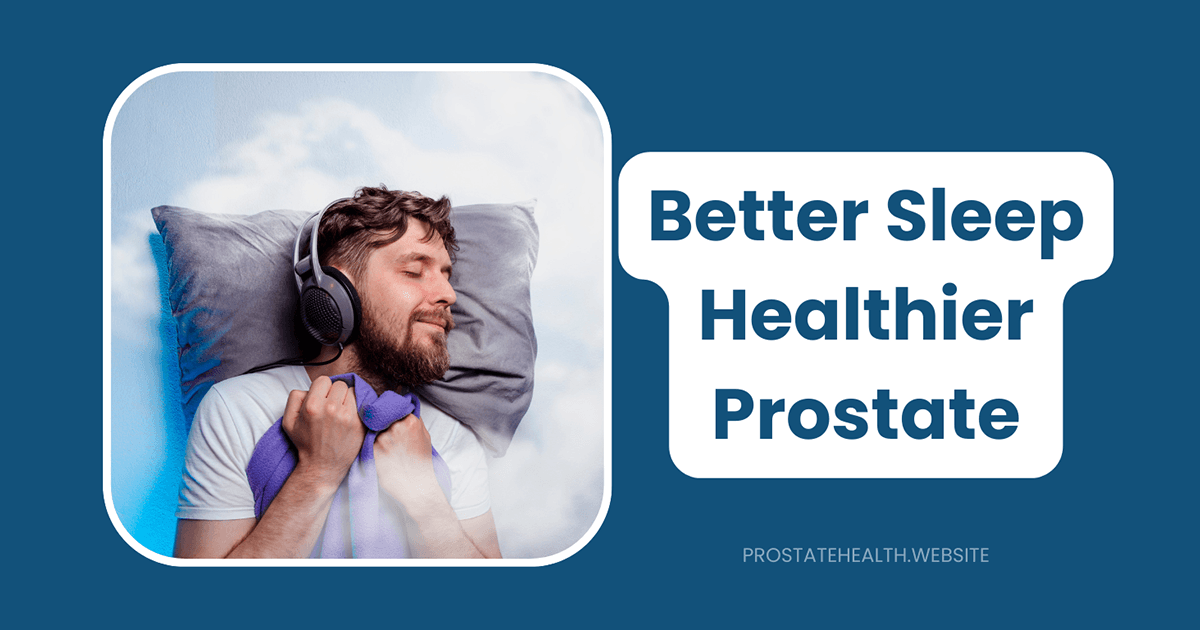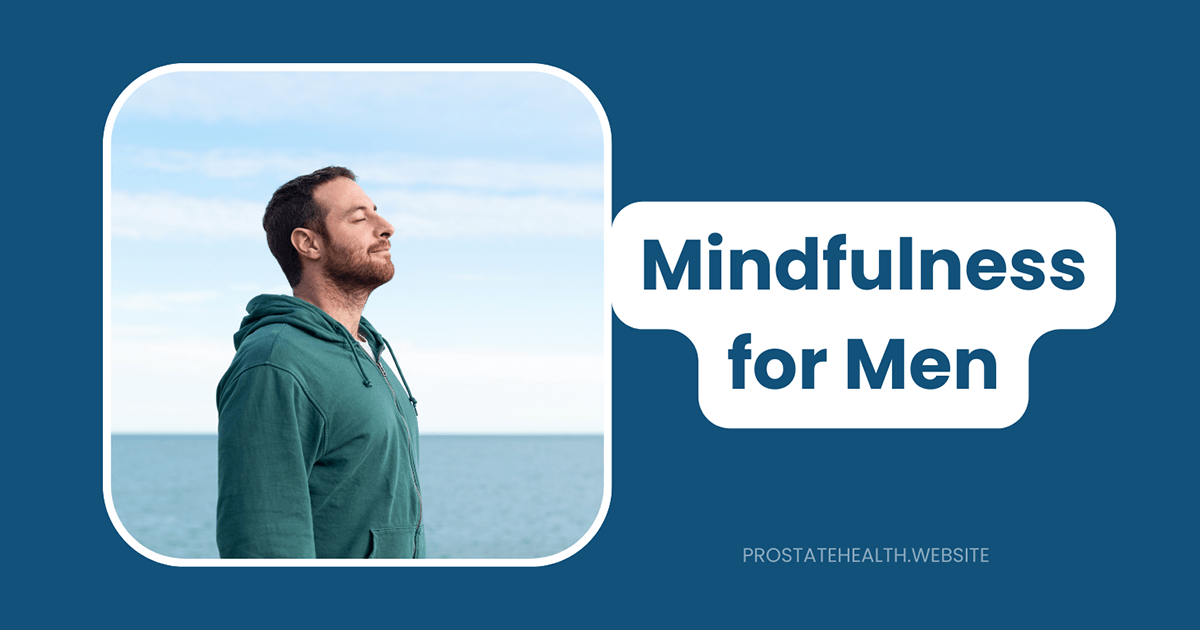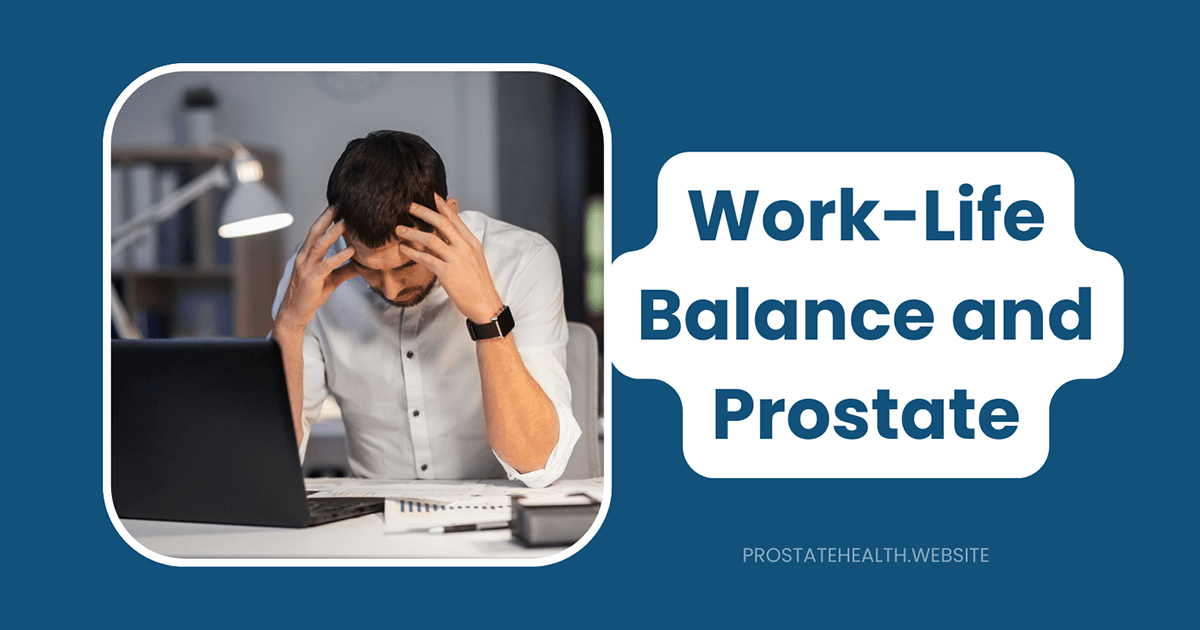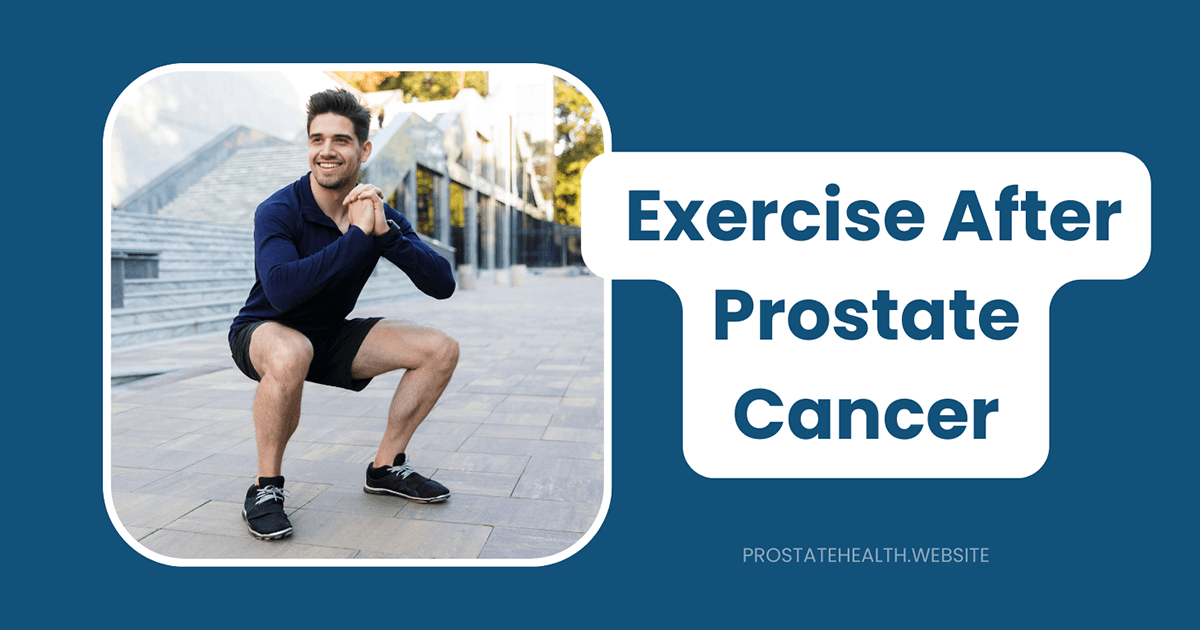Sleep Quality and Prostate Health: The Surprising Connection

When James, a 58-year-old accountant, started experiencing prostate problems, his urologist asked an unexpected question: “How well are you sleeping?” James was surprised. “What does my sleep have to do with my prostate?” he wondered.
As it turns out, quite a lot. Emerging research reveals a compelling and often overlooked connection between sleep quality and prostate health. This relationship works in both directions—prostate issues can disrupt sleep, and poor sleep may contribute to prostate problems.
“The link between sleep and prostate health is one of the most underappreciated aspects of men’s wellness,” explains Dr. Robert Chen, a board-certified urologist specializing in men’s health. “Many men don’t realize that their sleep patterns could be affecting their prostate, or that addressing sleep issues might improve their prostate symptoms.”
This comprehensive guide explores the fascinating science behind the sleep-prostate connection and offers practical strategies to improve both aspects of your health.
The Science: How Sleep Affects Your Prostate
Recent research has uncovered several key mechanisms through which sleep quality influences prostate health:
1. Hormonal Regulation
Sleep plays a crucial role in regulating hormones that affect prostate function:
- Testosterone: Quality sleep helps maintain healthy testosterone levels, which influence prostate growth and function. Sleep disruption can alter testosterone production and metabolism.
- Melatonin: This sleep hormone has antioxidant and anti-inflammatory properties that may protect against prostate issues. A study from the Prostate Cancer Foundation notes that “quality sleep helps regulate hormones and may speed recovery” after prostate treatment.
- Growth hormone: Released primarily during deep sleep, growth hormone helps repair tissues throughout the body, including the prostate.
- Cortisol: Poor sleep increases cortisol (stress hormone) levels, which can promote inflammation and potentially worsen prostate conditions.
2. Inflammation Control
Sleep quality significantly impacts inflammation throughout the body, including the prostate:
- During quality sleep, the body produces anti-inflammatory cytokines and suppresses pro-inflammatory compounds.
- Sleep deprivation triggers increased production of inflammatory markers like interleukin-6 (IL-6) and C-reactive protein (CRP).
- Chronic inflammation is a known risk factor for prostate conditions, including benign prostatic hyperplasia (BPH) and prostate cancer.
According to a comprehensive review in PMC, “sleep deprivation results in increased pro-inflammatory signaling, contributing to the onset and worsening of infection and inflammation-related chronic diseases,” including prostate issues.
3. Immune Function
Quality sleep is essential for optimal immune function, which helps protect against prostate problems:
- Sleep enhances the activity of natural killer (NK) cells, which play a role in preventing cancer development.
- During deep sleep, the immune system’s memory components are strengthened, improving its ability to recognize and respond to threats.
- Sleep deprivation impairs immune surveillance, potentially allowing abnormal prostate cells to evade detection.
Research published in Cancer World found that “sleep deprivation weakens immune function, reducing the activity of natural killer cells and impairing the body’s ability to combat cancer,” including prostate cancer.
4. Oxidative Stress Management
Sleep helps the body manage oxidative stress, which can damage prostate cells:
- Quality sleep enhances the body’s antioxidant defenses, protecting cells from oxidative damage.
- Poor sleep increases production of reactive oxygen species (ROS), which can damage DNA and promote cellular abnormalities.
- Oxidative stress is implicated in both BPH and prostate cancer development.
5. Metabolic Health
Sleep quality influences metabolic processes that affect prostate health:
- Poor sleep is associated with insulin resistance, which may promote prostate cell growth and inflammation.
- Sleep deprivation alters glucose metabolism, potentially creating conditions favorable for prostate issues.
- Disrupted sleep is linked to obesity, a known risk factor for aggressive prostate cancer.
The Evidence: What Research Reveals About Sleep and Prostate Health
The connection between sleep and prostate health is supported by a growing body of research:
Sleep Quality and BPH (Enlarged Prostate)
- A 2023 study published in BMC Public Health found that “poor sleep quality is significantly associated with a higher incidence of BPH among middle-aged and older men.” Specifically, men with the poorest sleep quality were 1.615 times more likely to develop BPH compared to those with the best sleep quality.
- A recent analysis of over 2,500 U.S. men found that “short sleep duration (<7 hours) is linked to a significantly higher risk of BPH, with an odds ratio of 1.92.” This means men who consistently sleep less than 7 hours have nearly double the risk of developing an enlarged prostate.
- The same study found that “trouble sleeping and sleep disorders are also strongly associated with BPH,” with odds ratios of 1.54 and 1.63, respectively.
Sleep and Prostate Cancer Risk
- A landmark study from the National Cancer Institute involving over 30,000 men found that “poor sleep quality was associated with a 15-20% greater risk of prostate cancer.” Specifically, men who experienced 30 minutes or more of wakefulness after falling asleep had a significantly higher risk compared to those with less disrupted sleep.
- Research has linked short sleep duration with an increased risk of fatal prostate cancer and high-grade prostate cancer, suggesting that sleep may influence not just cancer development but also its aggressiveness.
- A study cited by Cancer World found that “men experiencing prolonged wakefulness after sleep onset have an increased risk of prostate cancer.”
Sleep and Prostate Cancer Treatment
- The Prostate Cancer Foundation reports that “quality sleep is crucial for well-being, especially for patients with prostate cancer and survivors, as it acts as ‘medicine’ that improves treatment outcomes and survivorship.”
- Research suggests that good sleep may enhance the effectiveness of cancer treatments by optimizing immune function and reducing inflammation.
- Poor sleep during cancer treatment is associated with increased side effects, slower recovery, and potentially poorer outcomes.
The Two-Way Street: How Prostate Issues Affect Sleep
While sleep affects prostate health, the relationship works both ways—prostate conditions often disrupt sleep:
Nocturia: The Midnight Disruption
Nocturia (frequent nighttime urination) is one of the most common symptoms of prostate issues:
- Men with BPH often experience multiple nighttime bathroom trips due to incomplete bladder emptying and increased urinary urgency.
- These disruptions prevent achieving deep, restorative sleep stages essential for prostate health.
- The resulting sleep fragmentation can create a vicious cycle, where poor sleep worsens prostate inflammation, which further disrupts sleep.
According to Advanced Neurology and Sleep, “as the prostate enlarges, it can press against the urethra, increasing the need to urinate and causing sleep disturbances.”
Pain and Discomfort
Prostate conditions can cause physical discomfort that makes quality sleep difficult:
- Prostatitis (prostate inflammation) often causes pelvic pain that worsens when lying down.
- After prostate procedures or surgery, pain and tenderness can significantly impair sleep quality.
- Radiation therapy for prostate cancer may cause side effects that disrupt sleep.
Anxiety and Stress
The psychological impact of prostate conditions can severely affect sleep:
- Worry about prostate cancer diagnosis or treatment outcomes can lead to insomnia.
- Frustration over urinary symptoms can increase stress, making it harder to fall and stay asleep.
- Concerns about nighttime incontinence may cause anxiety that prevents deep sleep.
Finding Balance: Strategies to Improve Both Sleep and Prostate Health
The good news is that many strategies can simultaneously improve both sleep quality and prostate health:
Optimize Your Sleep Environment
Creating ideal conditions for quality sleep can benefit your prostate:
- Maintain a cool, dark bedroom: Temperature between 60-67°F (15-19°C) and minimal light exposure promote deeper sleep.
- Reduce noise disruptions: Use earplugs, white noise machines, or sound-absorbing materials if needed.
- Invest in comfort: A supportive mattress and pillows can reduce discomfort that might disrupt sleep.
- Limit electronics: The blue light from screens can suppress melatonin production, so avoid devices at least 1 hour before bedtime.
Establish Healthy Sleep Habits
Consistent sleep routines support both better sleep and prostate health:
- Maintain regular sleep-wake times: Going to bed and waking up at consistent times helps regulate your body’s internal clock.
- Aim for 7-9 hours: Research suggests this is the optimal sleep duration for most adults, including for prostate health.
- Create a relaxing bedtime routine: Activities like reading, gentle stretching, or meditation can signal to your body that it’s time to sleep.
- Avoid sleep disruptors: Limit caffeine after noon, avoid alcohol close to bedtime, and be cautious with medications that might affect sleep.
Manage Fluid Intake Strategically
Smart fluid management can reduce nocturia while maintaining hydration:
- Front-load fluids: Drink more fluids earlier in the day and reduce intake in the 2-3 hours before bedtime.
- Limit bladder irritants: Reduce consumption of alcohol, caffeine, artificial sweeteners, and spicy foods, especially in the evening.
- Double-void before bed: Urinate, wait a few minutes, then urinate again to more completely empty your bladder before sleep.
Exercise Appropriately
Physical activity benefits both sleep and prostate health:
- Regular moderate exercise: Aim for at least 150 minutes of moderate activity weekly, which improves sleep quality and reduces prostate inflammation.
- Timing matters: Exercise earlier in the day generally promotes better sleep than evening workouts.
- Include pelvic floor exercises: Kegels and other pelvic floor strengthening exercises can improve both prostate symptoms and sleep disruption.
- Consider yoga: Certain yoga poses may help reduce prostate inflammation while promoting relaxation for better sleep.
Adopt an Anti-Inflammatory Diet
Dietary choices can significantly impact both sleep and prostate health:
- Mediterranean-style eating: Emphasize fruits, vegetables, whole grains, fish, olive oil, and nuts.
- Increase plant foods: Aim for 7-9 servings of fruits and vegetables daily.
- Include sleep-promoting foods: Tryptophan-rich foods (turkey, chicken, eggs, cheese), complex carbohydrates, magnesium-rich foods (nuts, seeds), and tart cherries (natural melatonin) may support better sleep.
- Limit inflammatory foods: Reduce processed foods, refined sugars, and red meat, which can worsen both sleep and prostate inflammation.
Manage Stress Effectively
Stress reduction benefits both sleep quality and prostate health:
- Regular relaxation practices: Meditation, deep breathing, or progressive muscle relaxation can lower stress hormones.
- Cognitive behavioral therapy for insomnia (CBT-I): This evidence-based approach addresses thoughts and behaviors that interfere with sleep.
- Journaling: Writing down worries before bedtime can help clear your mind for better sleep.
- Consider professional support: If anxiety about prostate health is significantly affecting your sleep, talking with a therapist or counselor may help.
When to Seek Professional Help
While lifestyle changes can significantly improve both sleep and prostate health, certain situations warrant professional guidance:
Consult a healthcare provider if:
- You regularly wake up more than twice nightly to urinate
- You experience pain or burning during urination
- You have difficulty starting or stopping urination
- You notice blood in your urine or semen
- You consistently have trouble falling or staying asleep despite good sleep habits
- You experience excessive daytime sleepiness or fatigue
- You snore loudly or have pauses in breathing during sleep (possible sleep apnea)
Consider specialized care:
- Urologist: For persistent or worsening prostate symptoms
- Sleep specialist: For chronic insomnia, suspected sleep apnea, or other sleep disorders
- Integrative medicine physician: For a holistic approach to both sleep and prostate health
Advanced Treatments and Considerations
For men with significant sleep and prostate issues, several medical approaches may help:
For Sleep Disorders
- Sleep study (polysomnography): Can identify underlying sleep disorders like sleep apnea, which is linked to worse prostate outcomes
- CPAP therapy: For sleep apnea, which may reduce prostate inflammation when treated
- Prescription sleep medications: Used judiciously and short-term when appropriate
- Cognitive Behavioral Therapy for Insomnia (CBT-I): Often more effective than medication for chronic insomnia
For Prostate Conditions
- Medications: Alpha-blockers, 5-alpha reductase inhibitors, and other medications can reduce prostate symptoms that disrupt sleep
- Minimally invasive procedures: Several outpatient procedures can reduce prostate size and improve urinary symptoms
- Supplements: Some evidence supports saw palmetto, beta-sitosterol, and other supplements for mild prostate symptoms
Emerging Approaches
- Chronotherapy: Timing medications to work with your body’s natural rhythms
- Light therapy: May help regulate circadian rhythms disrupted by prostate issues
- Digital therapeutics: Apps and programs specifically designed to improve sleep in men with prostate conditions
Success Stories: Men Finding Balance
While individual results vary, many men have successfully improved both their sleep and prostate health:
James, 58, BPH patient: “After my urologist explained the connection between my poor sleep and prostate symptoms, I made changes to both. I started front-loading my fluids, created a consistent sleep routine, and began daily walks. Six months later, I’m down from waking up 4-5 times a night to just once, and my daytime urinary symptoms have improved dramatically too.”
Robert, 65, prostate cancer survivor: “During radiation treatment, my sleep was terrible, which made everything harder. My oncologist recommended CBT-I with a sleep specialist. Learning techniques to manage both the physical discomfort and the anxiety made a huge difference. Better sleep seemed to reduce my treatment side effects and speed my recovery.”
Michael, 52, chronic prostatitis: “I’d suffered from prostatitis flare-ups for years, and they always wrecked my sleep. Working with an integrative physician, I adopted an anti-inflammatory diet, regular meditation, and better sleep habits. The improvement has been remarkable—fewer flare-ups, better sleep, and a much better quality of life.”
Conclusion: The Power of the Sleep-Prostate Connection
The relationship between sleep quality and prostate health represents one of the most underappreciated aspects of men’s wellness. By understanding and addressing this connection, men can potentially improve both their sleep and their prostate health simultaneously.
As Dr. Chen explains, “When we help men improve their sleep, we often see improvements in their prostate symptoms. And when we treat their prostate issues effectively, their sleep typically improves as well. It’s a powerful positive cycle that can significantly enhance quality of life.”
The science is clear: quality sleep isn’t just a luxury—it’s an essential component of prostate health. By implementing the strategies outlined in this guide, you can take meaningful steps toward better sleep and a healthier prostate.
Remember James, the accountant who was surprised by his urologist’s question about sleep? Six months after implementing changes to improve both his sleep and prostate health, he reports: “I never realized how connected these issues were. Addressing both together has made a bigger difference than I ever expected. I’m sleeping better, my prostate symptoms have improved, and I have more energy throughout the day.”
Your prostate—and your overall health—will thank you for prioritizing quality sleep.
Have you noticed a connection between your sleep quality and prostate health? Share your experience in the comments below to help other men on their journey to better health.






